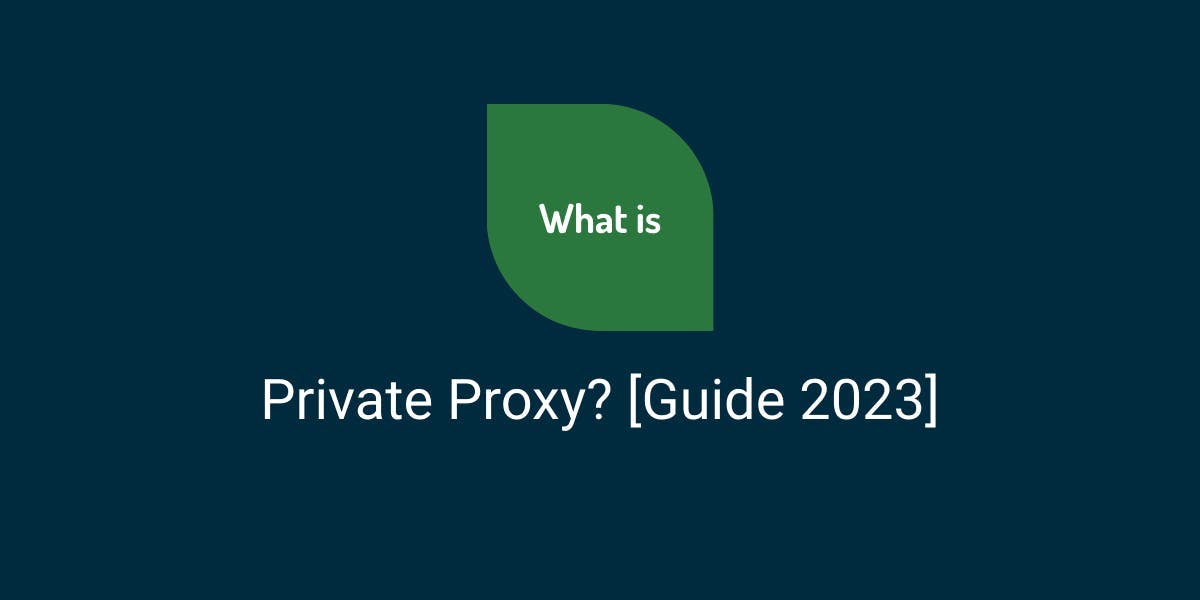How Does a Proxy Server Improve Security
Flipnode on Apr 11 2023

Proxy servers offer a wide range of benefits, from filtering a company's internet usage to enabling access to country-specific websites. However, the most crucial function of a proxy server is to provide a high level of security for sensitive data. In today's world, where cyber threats are on the rise, protecting one's IP address is crucial as it is often used in many prominent methods of cyberattacks.
Using a proxy server to change the IP address provides an additional layer of security. Moreover, proxies can also be integrated with web filters, firewalls, and anti-detect browsers, creating a solid foundation for even more layers of security.
It's important to note that proxy servers come in various forms, including forward proxies and reverse proxies. While security is undoubtedly the most significant benefit of using a proxy server, it's worth mentioning that they offer other advantages as well. By routing traffic through a proxy server, it can improve performance, reduce network congestion, and even provide load balancing capabilities.
More Benefits of Proxy Servers
Now, let's take a closer look at one of the previously mentioned use cases - accessing restricted, country-specific websites.
Getting access to unavailable websites
One of the most common uses of proxies is accessing websites that are restricted by geographic location. Proxies are effective because they are tied to a particular region, which allows users to bypass restrictions while hiding their actual IP address. It's worth noting that certain proxy features, such as IP address concealment, may appear similar to those of a VPN. However, it's important to understand that the two technologies are designed for very different purposes.
Improving your privacy
In the current age, with privacy becoming a rare commodity for the general public, safeguarding internet anonymity is increasingly vital. Fortunately, proxies offer several solutions to maintain privacy effectively. One such solution is hiding the user's IP address, which blocks most common internet monitoring methods.
In addition, proxies can also thwart other notable tracking methods such as HTTP cookies and DNS requests. All in all, if browsing privacy is one of your top concerns, proxies provide a highly viable option to achieve it
Staying Anonymous with Anti-Detect Browsers
In the previous section, we highlighted the growing need for anonymity among individuals and businesses. We also mentioned how proxies can serve as a basis for additional layers of security and anonymity. An important layer in this regard is the use of anti-detect browsers.
Anti-detect browsers have a range of uses, including managing multiple accounts, anonymous browsing, and more. However, to achieve these purposes, they must first effectively counter browser fingerprinting. Therefore, before delving into the specifics of anti-detect browsers, let's take a closer look at what browser fingerprinting entails.
Browser fingerprinting
Browser fingerprinting is a technique used by websites to gather information about a user's browser and device. This information includes the operating system, browser version and type, language, time zone, screen resolution, active plugins, and many other data points. When combined, this information creates a unique identifier or "fingerprint" that can be used to track a user's online activity across different websites and devices.
Unlike cookies, which can be cleared or blocked, browser fingerprints are much more difficult to evade. This is because they are based on the hardware and software characteristics of a user's device, which are difficult to modify. Therefore, even if a user clears their cookies or uses a different browser, their browser fingerprint remains the same.
The implications of browser fingerprinting are significant. Advertisers and data brokers can use this information to build detailed profiles of users and target them with highly personalized ads. Governments and law enforcement agencies can also use browser fingerprints to track the online activities of individuals, potentially violating their privacy and civil liberties.
To counter browser fingerprinting, anti-detect browsers have emerged as a viable solution. These browsers are designed to obscure a user's browser fingerprint by randomly changing browser settings, such as the user agent, screen resolution, and plugins. This makes it much more difficult for websites to track users and build accurate profiles.
Anti-Detect Browsers
Anti-detect browsers are specialized applications designed to create unique and distinct browser environments that are independent of the user's actual browser. These browsers alter the digital fingerprint of the user's browser, making it difficult for websites to link one browser environment to another. This is accomplished by isolating local storage, cookies, and cache files, among other things. As a result, websites are unable to track a user's browsing behavior, which enhances privacy and anonymity.
These anti-detect browsers are particularly useful in industries that require managing multiple accounts, such as controlling merchant profiles on major e-commerce sites like Amazon. Due to their clear and significant advantages, there is a plethora of anti-detect browser solutions available today. Multilogin, Adspower, GoLogin, and Incogniton are just a few examples of excellent anti-detect browsers.
Integrating proxies with anti-detect browsers is an uncomplicated and fast process that can significantly enhance browsing security and anonymity. Combining these two technologies can provide an additional layer of protection against online threats, such as browser fingerprinting, and prevent websites from tracking a user's browsing activity. Therefore, if you value privacy and anonymity, it is highly recommended to consider using an anti-detect browser and a reliable proxy service.
Conclusion
If security, especially on a corporate level, is a concern, proxies are a straightforward solution. Yet, they may not be the final step. While proxies provide a variety of value-generating features, one that is mentioned less often is how well they integrate with other data security and anonymity-improving solutions. Therefore, combining proxies and other applications, such as anti-detect browsers, can be a wise choice if security is among the most crucial aspects you require.



